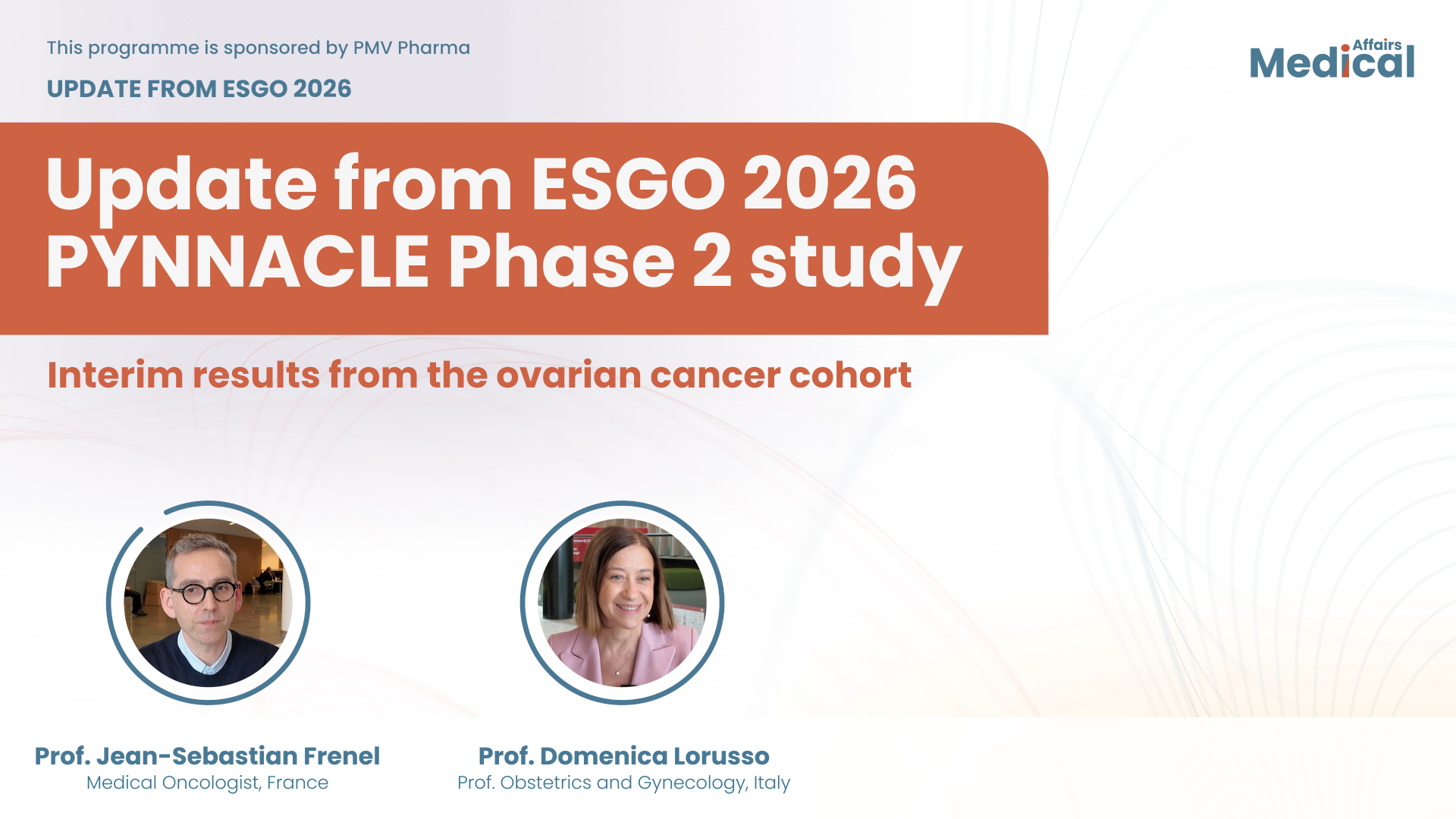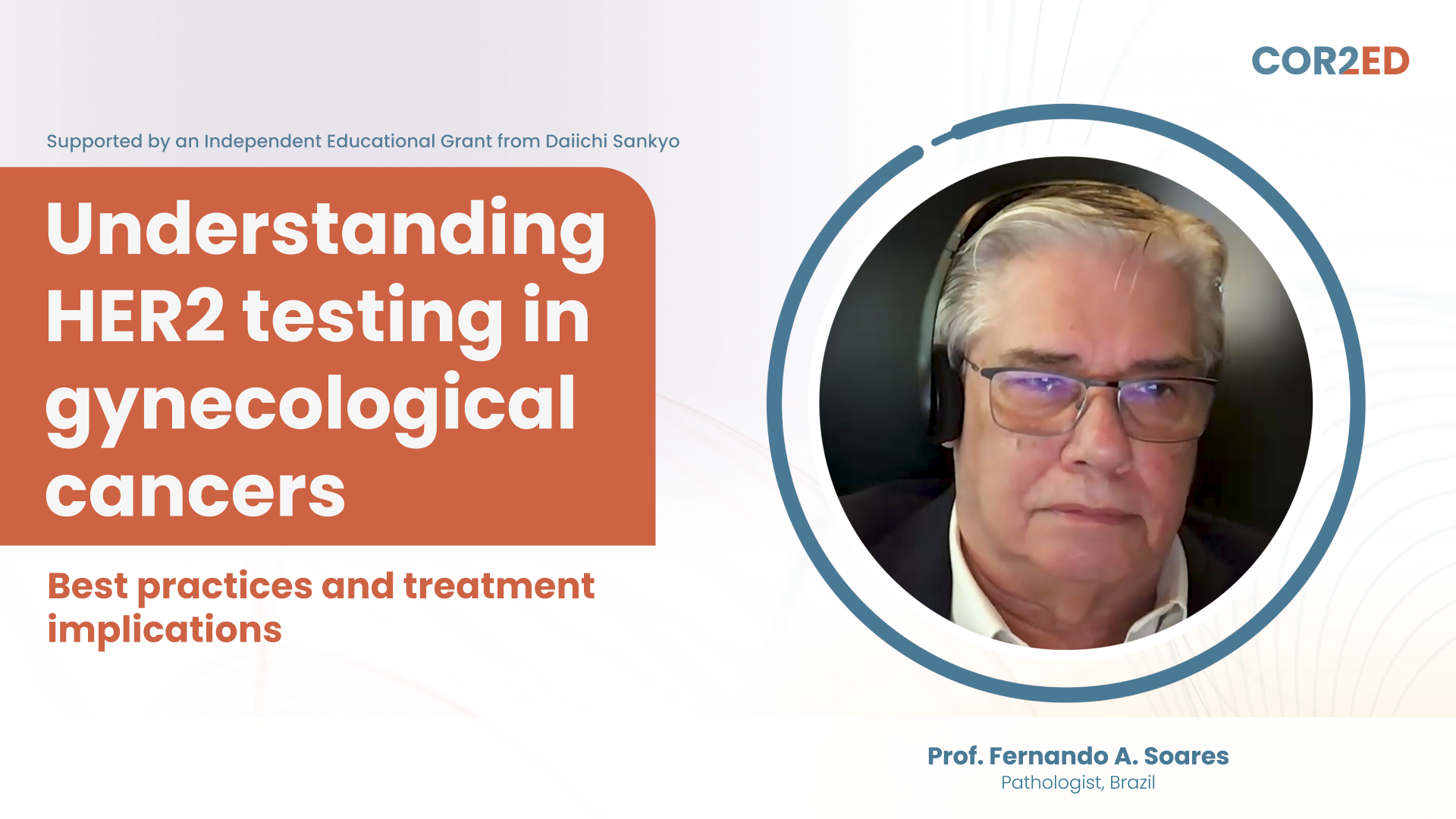Access these resources to learn more about the latest long-term outcomes data for larotrectinib in CNS and GI cancers, and to access an overview of the TAPISTRY platform trial. Prof Andrea Sartore-Bianchi (NTRK CONNECT) has developed this resource with COR2ED.
Hello I’m Andrea Sartore-Bianchi, a medical oncologist at Niguarda Hospital and University of Milan, Italy.
And I’m glad to provide you with this update about data regarding NTRK fusions as target of therapy from recent ASCO and World Congress on Gastrointestinal Cancer 2021.
There is indeed always interest around this agnostic target of cancer therapy and some relevant updates and new analysis have been presented in both congresses with a particular focus also on GI cancers.
First of all, at ASCO 21 an updated efficacy analysis for larotrectinib has been presented with a two years efficacy and safety follow up of the integrated data set from the three phase 1 and 2 trials previously presented. Now the total number of patients is more than 200, mainly sarcomas but also 5% colorectal cancer.
The main message from this data is that the majority of patients with TRK fusion cancer treated with larotrectinib had a long-term clinical benefit with very durable responses in PFS and OS and the safety profile continued to be favourable.
In this data set there were no CNS primary tumours but at the same congress, ASCO 2021, Dr Perreault presented data, instead of larotrectinib in the specific population of primary CNS tumour, and this is another important population, given the efficacy that we know that NTRK inhibitor has also in this setting.
In this analysis tumours were mainly high grade gliomas and also in this population larotrectinib induced tumour shrinkage in the majority of patients and rapid and durable responses with a high disease control rate and a favourable safety profile.
Now turning to the World Congress of Gastrointestinal Cancer, here we had presented by Dr Boni an interesting updated analysis on an expanded data set of GI tumours treated with larotrectinib. 18 patients had been presented and mostly presented with colorectal cancer. And now in colorectal cancer these patients were mainly MSI-high because it has been well confirmed, and now we know, that there is an enrichment for NTRK fusion in colorectal cancer that are RAS, BRAF wild type, MSI-high and MLH1 methylated. So these are those sporadic MSI-high tumours, and in this analysis, there were also cholangiocarcinoma and pancreatic cancer.
So the overall response rate has been confirmed to be 40% up to 50% in colorectal cancer and also here in this tumour type a complete response has been observed. The overall survival in the colorectal cancer cohort were also very long, approaching 30 months. And it is important to understand if this patient received also immunotherapy, being for the most part of them also MSI-high.
Finally, it should be mentioned that, at the ASCO Congress, also the trial design of the TAPISTRY trial is being presented by Dr Drilon. This is a novel platform, a phase 2 umbrella trial with target therapy or immunotherapy based on relevant oncogenic alterations and there is indeed a cohort of NTRK positive patients to be treated with entrectinib.
So overall, there is an interest, and these recent presentations highlight, I think, the importance of testing for NTRK gene fusions in patients with cancer. The majority of patients with this molecular alteration had long-term clinical benefit. With TRK inhibitors there are also data regarding GI tumours now in particular MSI colorectal cancer. And this, I think, can add a valuable target also in this tumour type, in this specific subpopulation.
I thank you very much for your attention and I encourage you to visit the NTRK CONNECT website where you can find also a complete slide deck with all these presentations from ASCO and World Congress on Gastrointestinal Cancer, thank you.
This programme is supported by an Independent Educational Grant from Bayer




 Downloadable
Downloadable  5 MIN
5 MIN
 Mar 2026
Mar 2026 





